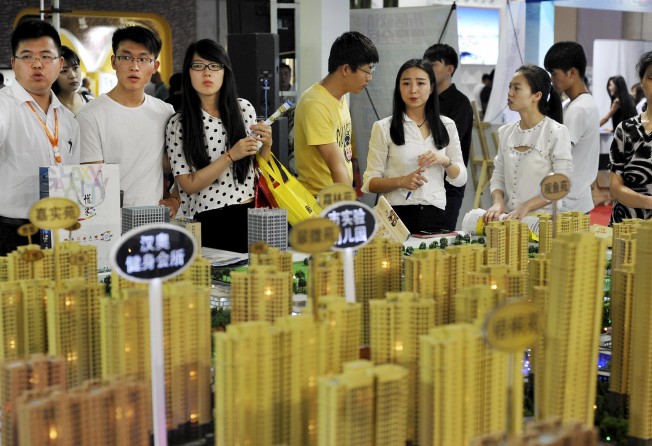Property stocks climb after China’s central bank tweaks monetary policy

Shares of Chinese property firms climbed on Monday after the People’s Bank of China (PBOC) said it would broaden the range of collateral it accepts as part of its medium-term lending facility (MLF), making another slight tweak to its monetary policy.
Introduced to PBOC’s monetary policy toolkit in September 2014, MLFs are loans given by the central bank to commercial lenders in exchange for collateral. The loans come in three tenors: three, six and 12 months.
In addition to the use of bonds and central bank bills as MLF collateral, the bank is adding assets including AA rated corporate bonds and loans issued by small companies and green businesses, the PBOC said in a statement late on Friday.
Sunac China Holdings climbed 5.9 per cent to HK$32.40. Country Garden Holdings rose 5 per cent to HK$16.46, the best performing blue chip. China Overseas Land & Investment was 3.2 per cent higher at HK$27.10 and China Resources Land gained 3.6 per cent to HK$30.55.
The Hang Seng Index rose 1.7 per cent higher or 505.07 points at 30,997.98, rising for a third day, while the Hang Seng China Enterprises Index gained 1.9 per cent or 229.49 points to 12,249.58.
Concerns are mounting over rising corporate defaults in low grade corporate debt and that banks may potentially face higher financing demand through the formal banking sector as the shadow banking sector is suppressed amid the government’s crackdown on risky lending, analysts said.
The MLF collateral expansion by the PBOC will therefore help lower lenders’ funding costs and boost support to smaller businesses, they added.
Other mild recent loosening of policies include the 900 billion yuan (US$140.2 billion) liquidity released by the PBOC’s reserve requirement ratio cut in April will also help relieve banks’ pressure to repay their outstanding MLF to the central bank.
Local authorities have also started to ease curbs on new flat pre-sales in several major Chinese cities, according to a report by Thomson Reuters last month.
Developers for the first time in about a year have also been allowed to raise prices slightly.